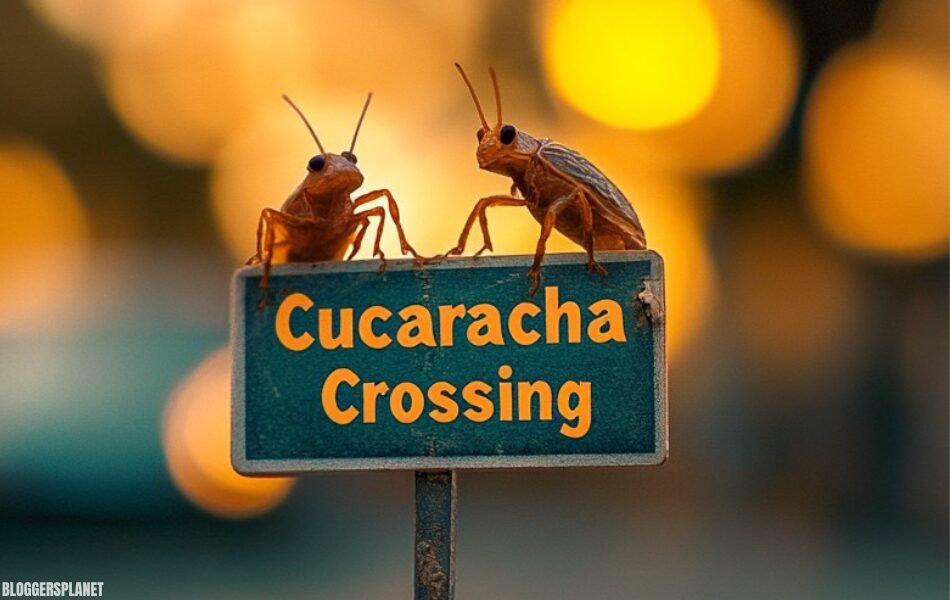Will Hissing Cockroaches Not Eat If Theyre Dehydrated?

Will Hissing Cockroaches Not Eat if Theyre Dehydrated, with their distinctive defensive hiss and intriguing behavior, are popular pets among insect enthusiasts. Like any living creature, they have specific needs to thrive, and water is one of them. A common question among owners is whether dehydration will affect their pet’s appetite.
In short, yes, a dehydrated hissing cockroach will likely reduce or even stop eating.Water is essential for many bodily functions, including digestion. When a cockroach becomes dehydrated, its digestive system slows down, impacting its ability to process food. This can lead to a decrease in appetite, as the cockroach may not feel the urge to eat.
Hydration: A Vital Component of a Hissing Cockroach’s Health
Water is essential for a hissing cockroach’s well-being, playing a crucial role in various physiological processes, including digestion. When a cockroach dehydrates, its digestive system slows down, making it difficult to process food efficiently. This can lead to a decrease in appetite, as the cockroach may not feel the urge to eat.
Dehydration can also have a significant impact on a cockroach’s overall health and behavior. A dehydrated cockroach may become lethargic, less active, and more susceptible to diseases. It may also exhibit unusual behaviors, such as excessive grooming or attempting to drink from inappropriate sources.
In severe cases of dehydration, a cockroach may even refuse food altogether. This is because the body prioritizes essential functions like respiration and circulation over digestion when water levels are critically low. Therefore, it is crucial to maintain adequate hydration to ensure optimal health and prevent a decline in appetite.
Recognizing the Signs of Dehydration in Hissing Cockroaches
Recognizing the signs of dehydration in hissing cockroaches is crucial for timely intervention. A dehydrated cockroach may exhibit several physical symptoms. A significant decrease in activity levels can be observed, with a normally active cockroach becoming sluggish and unresponsive. Additionally, a reduction or complete cessation of feeding can occur as the cockroach’s digestive system slows down due to dehydration. The exoskeleton may appear darker or duller than usual, a result of moisture loss affecting its color and texture. Furthermore, a noticeable decrease in the speed and agility of the cockroach’s movements can be observed, as dehydration can impair muscle function, leading to slower reflexes and clumsier behavior.
While these symptoms can indicate dehydration, it is essential to rule out other potential health issues. For example, a loss of appetite could be caused by illness, injury, or simply a lack of appealing food options. Similarly, lethargy and slow movement could be signs of old age or a more serious underlying condition.
To differentiate between dehydration and other health problems, it is helpful to observe the cockroach’s overall behavior and appearance. If you notice multiple symptoms of dehydration, such as lethargy, loss of appetite, and a darkened exoskeleton, it is likely that dehydration is the primary issue. However, if you are unsure, it is always best to consult a veterinarian or a knowledgeable reptile and insect keeper for a proper diagnosis.
Preventing Dehydration in Hissing Cockroaches
To prevent dehydration in your hissing cockroaches, it is crucial to provide a reliable water source. Water dishes are a common method, but they can be challenging for cockroaches to access and may lead to water contamination. Gel water sources, on the other hand, are designed to provide a constant source of moisture without the risk of drowning. These gels can be purchased commercially or made at home using a mixture of water and a thickening agent like gelatin or agar-agar.
Another effective method for maintaining humidity levels is misting the enclosure. By misting the enclosure daily, you can create a humid microclimate that helps prevent dehydration. However, it is important to avoid over-misting, as excessive moisture can lead to mold and mildew growth.
The ideal humidity level for hissing cockroaches is between 60% and 70%. To monitor humidity levels, you can use a hygrometer, which is a device that measures relative humidity. If the humidity level drops below the recommended range, you can increase the frequency of misting or add more moisture-retaining substrate to the enclosure. Conversely, if the humidity level is too high, you can reduce the frequency of misting or increase ventilation.
Rehydrating a Dehydrated Hissing Cockroach
If you suspect that your hissing cockroach is dehydrated, it is important to take immediate action to rehydrate it. However, it is crucial to rehydrate the cockroach gradually to avoid shocking its system.
To begin the rehydration process, gently mist the enclosure with lukewarm water. Monitor the cockroach’s behavior closely. If it appears lethargic or unresponsive, you can offer it a small amount of water from a dropper or syringe. Be cautious not to force the water into the cockroach’s mouth, as this can cause it to aspirate.
As the cockroach begins to rehydrate, it will gradually become more active and responsive. Continue to monitor its behavior and adjust the rehydration process accordingly. If the cockroach shows no signs of improvement after a few hours, or if its condition worsens, it is advisable to seek advice from a veterinarian or a knowledgeable reptile and insect keeper.
Rapid rehydration can be risky, as it can lead to electrolyte imbalances and other health complications. Therefore, it is essential to rehydrate the cockroach slowly and steadily. By following these guidelines, you can help your dehydrated hissing cockroach recover and return to its normal health.
Conclusion: Will Hissing Cockroaches Not Eat If Theyre Dehydrated
In conclusion, dehydration can significantly impact a hissing cockroach’s health and behavior, including its appetite. By understanding the signs of dehydration and implementing preventive measures, you can ensure your pet’s well-being.
Remember, proper hydration is essential for a hissing cockroach’s overall health. By providing a reliable water source, maintaining optimal humidity levels, and monitoring your pet’s behavior, you can prevent dehydration and keep your cockroach thriving.
If you have concerns about your cockroach’s health, it is always best to seek advice from a qualified veterinarian or a knowledgeable reptile and insect keeper. They can provide expert guidance and help you address any specific issues.
For more information on caring for hissing cockroaches, consider consulting reputable online resources or joining online forums where experienced keepers can share their knowledge and advice.
FAQ’s
Q: Will Hissing Cockroaches Not Eat If Theyre Dehydrated?
A: Yes, a dehydrated hissing cockroach will likely reduce or even stop eating. Water plays a crucial role in their digestive system, and when dehydrated, their digestion slows down, affecting their appetite.
Q: What is the importance of hydration for hissing cockroaches?
A: Water is essential for a hissing cockroach’s well-being. It plays a crucial role in various physiological processes, including digestion. When a cockroach dehydrates, its digestive system slows down, making it difficult to process food efficiently. This can lead to a decrease in appetite, as the cockroach may not feel the urge to eat. Dehydration can also impact their overall health and behavior.
Q: What are the signs of dehydration in hissing cockroaches?
A: A dehydrated cockroach may exhibit several physical symptoms. They can become lethargic, less active, and more susceptible to diseases. They may also exhibit unusual behaviors, such as excessive grooming or attempting to drink from inappropriate sources. In severe cases, they may refuse food altogether.
Q: How can I prevent dehydration in hissing cockroaches?
A: To prevent dehydration, it’s crucial to provide a reliable water source. Water dishes can be used, but gel water sources are often more effective as they reduce the risk of drowning. Misting the enclosure daily can also help maintain humidity levels. The ideal humidity level for hissing cockroaches is between 60% and 70%.





